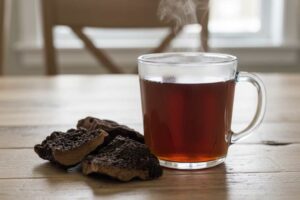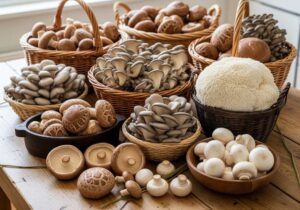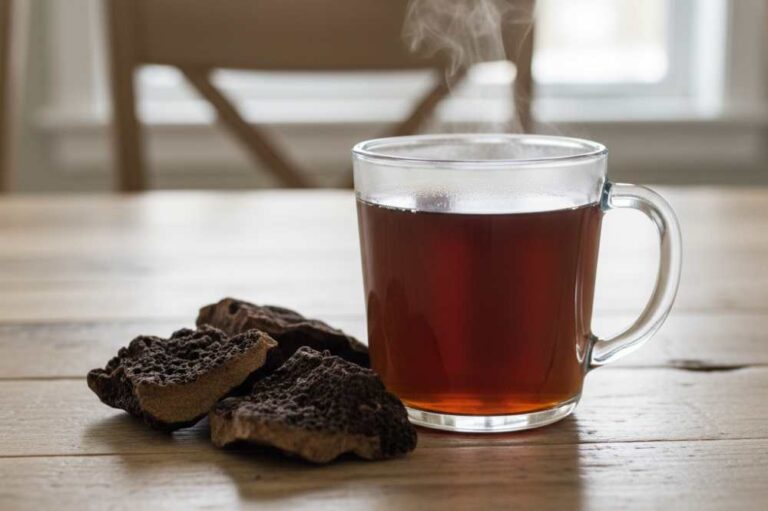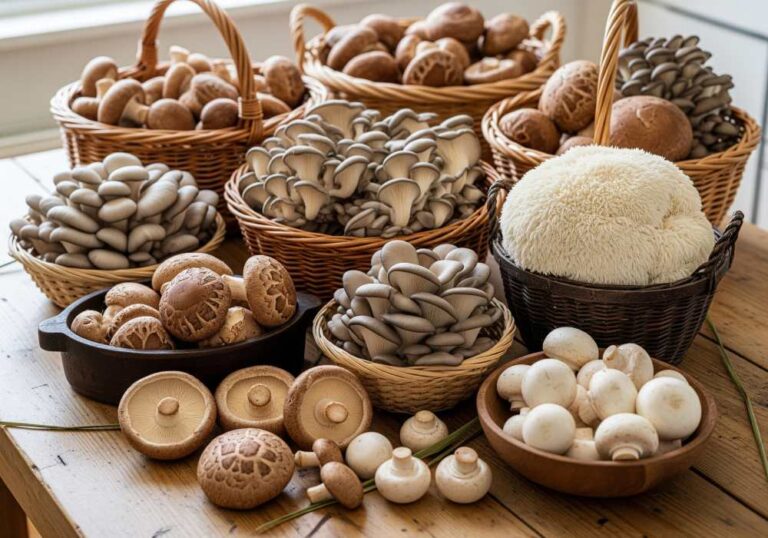Scrolling through your feed, you’ve likely seen it: vibrant lattes swirled with earthy hues, steaming mugs promising focus and calm, all tagged mushroom coffee or mushroom tea.
You’re not alone in feeling a little lost in the mushroom brew buzz.
With promises of enhanced cognition, boosted immunity, and stress relief, the buzz around these mushroom-infused beverages is undeniable. But with so many varieties and claims, the confusion is real. Which is better? Coffee or tea?
Let’s clear the fog by separating the hype from the health benefits.
What is Mushroom Coffee?
Mushroom coffee is a unique blend that combines traditional coffee with powdered medicinal mushrooms. It may sound unusual but the combination offers an interesting twist on the everyday coffee experience.
Coffee is usually made with familiar coffee beans, but what sets it apart is the addition of functional mushrooms like Chaga, Lion’s Mane, or Reishi.
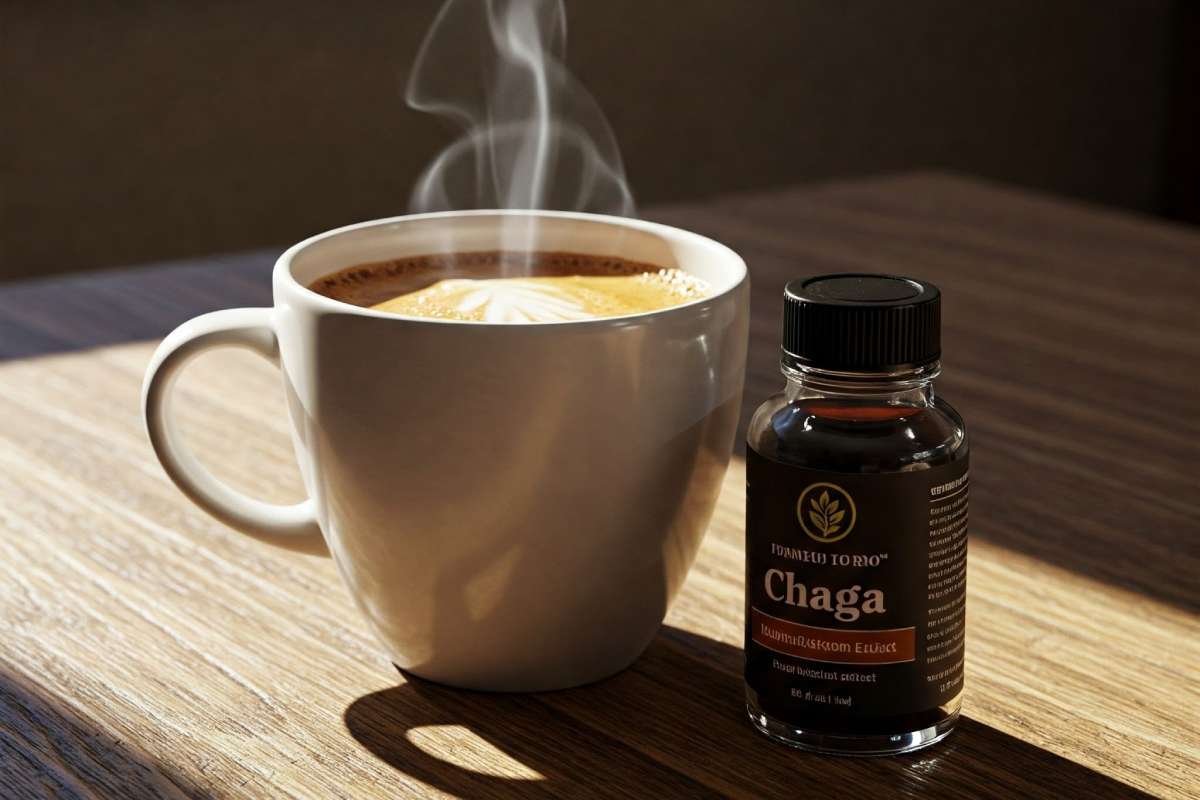
During World War II, when coffee was scarce, people in Finland began mixing Chaga mushrooms into their coffee as a substitute. This blend provided them with a coffee-like experience and introduced a range of health-boosting properties.
What is Mushroom Tea?
Mushroom tea has been part of traditional medicine for centuries, particularly in China and other parts of East Asia. In these cultures, mushrooms like Reishi, Cordyceps, and Shiitake have been used for their healing properties.
Mushroom tea is a soothing beverage made by steeping medicinal mushrooms in hot water, similar to how traditional tea is brewed.
Mushroom tea focuses solely on the benefits of mushrooms. This makes it a caffeine-free option that can be enjoyed throughout the day or as part of a nighttime routine.
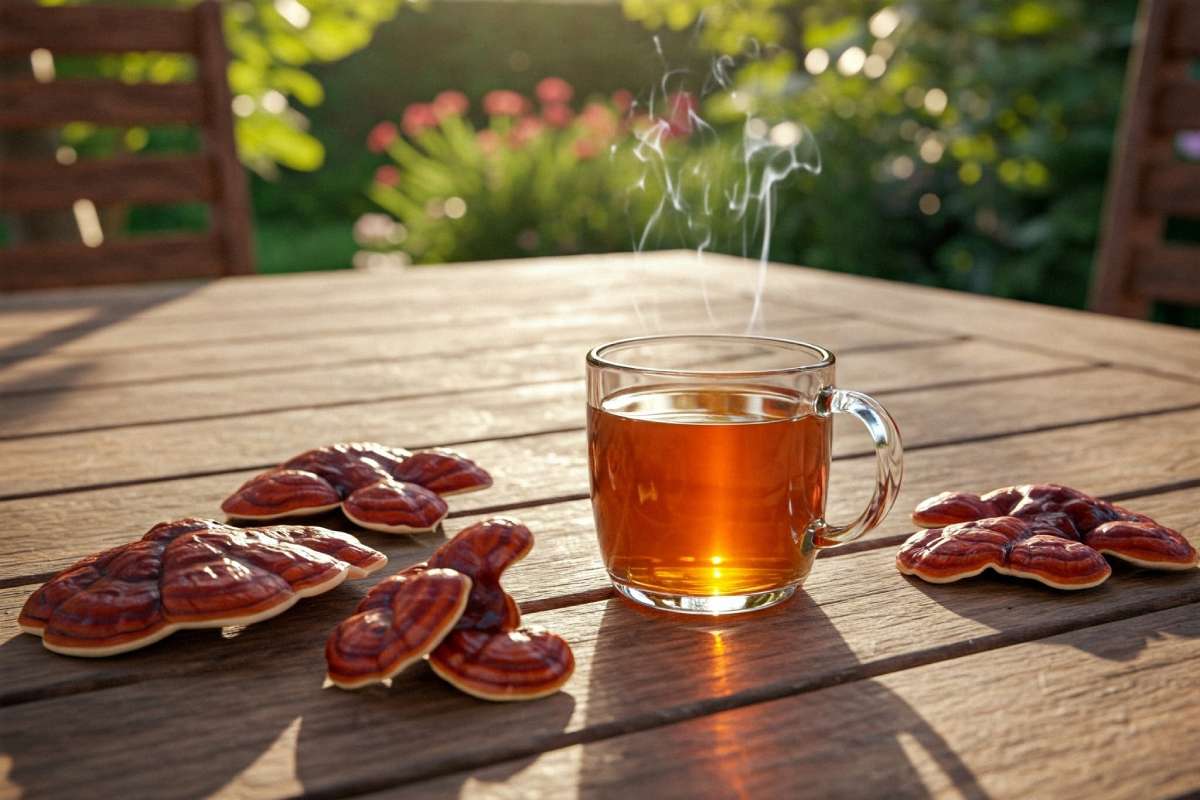
Comparison of Mushroom Coffee and Mushroom Tea
When choosing between mushroom coffee and mushroom tea, it’s important to understand the differences in their nutritional content, flavor profiles, caffeine levels, and health benefits.
Here’s a detailed look at how these two mushroom-based beverages compare.
Nutrition of Mushrooms
Mushroom coffee blends contain a mix of traditional coffee beans and medicinal mushrooms. This gives the drink a combination of nutrients from both sources.
Coffee beans in the Mushrooms provide some vitamins, minerals, and a dose of caffeine.
Both Mushroom coffee and tea are purely made from medicinal mushrooms. Depending on the mushroom used, you can find high levels of beta-glucans (known for supporting the immune system), polysaccharides, and other compounds that may aid in stress relief, immune support, and even heart health.
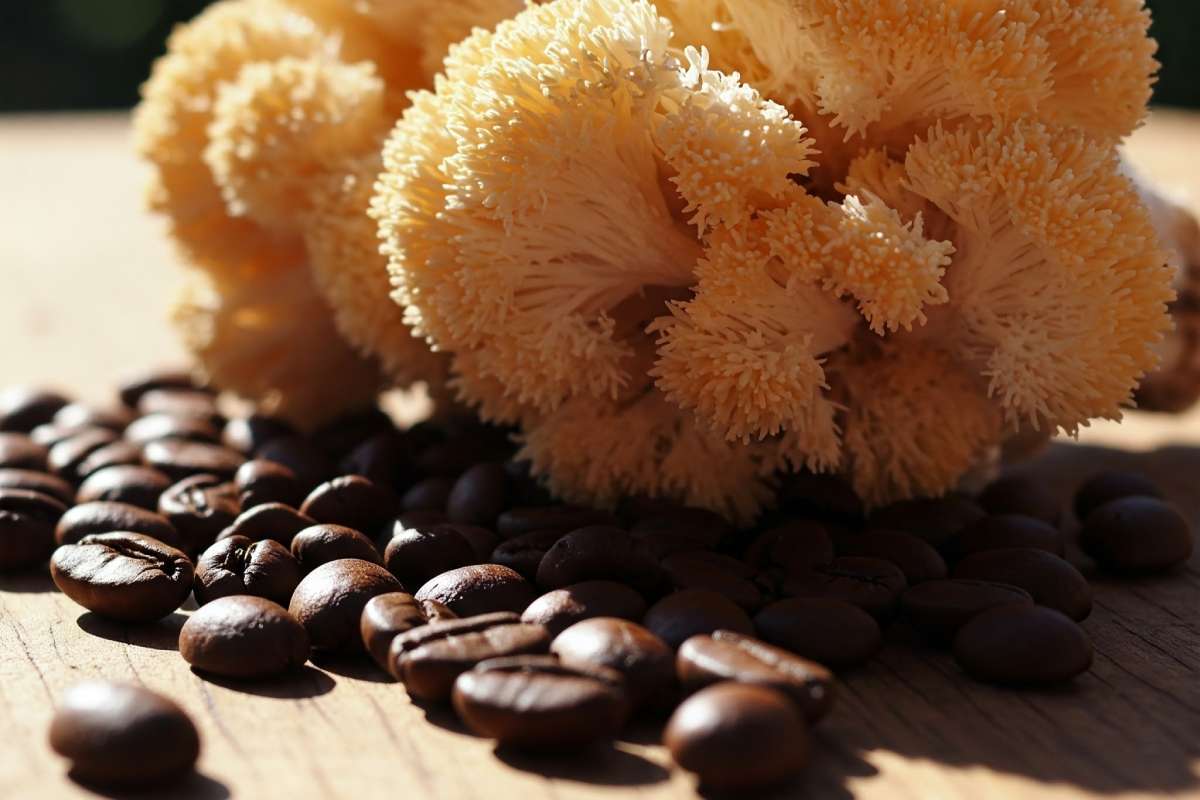
These are also the requirements for a low FODMAP diet that is ideal for people with IBS.
Both drinks are packed with functional nutrients, but mushroom tea often provides more immune-boosting benefits, while mushroom coffee balances nutrients with the energy-boosting effects of coffee beans.
Differences in the Taste bud
Mushroom coffee has a rich, slightly earthy taste but still retains the familiar flavor of regular coffee. The mushrooms add a mild, earthy note that enhances the flavor without overpowering the coffee itself.
Many people find mushroom coffee smoother and less acidic than traditional coffee, making it easier on the stomach.
Mushroom tea has a more earthy, herbal flavor, depending on the mushrooms used.
Some, like Reishi, have a bitter-woodsy taste, while others, like Cordyceps, can be slightly sweet.
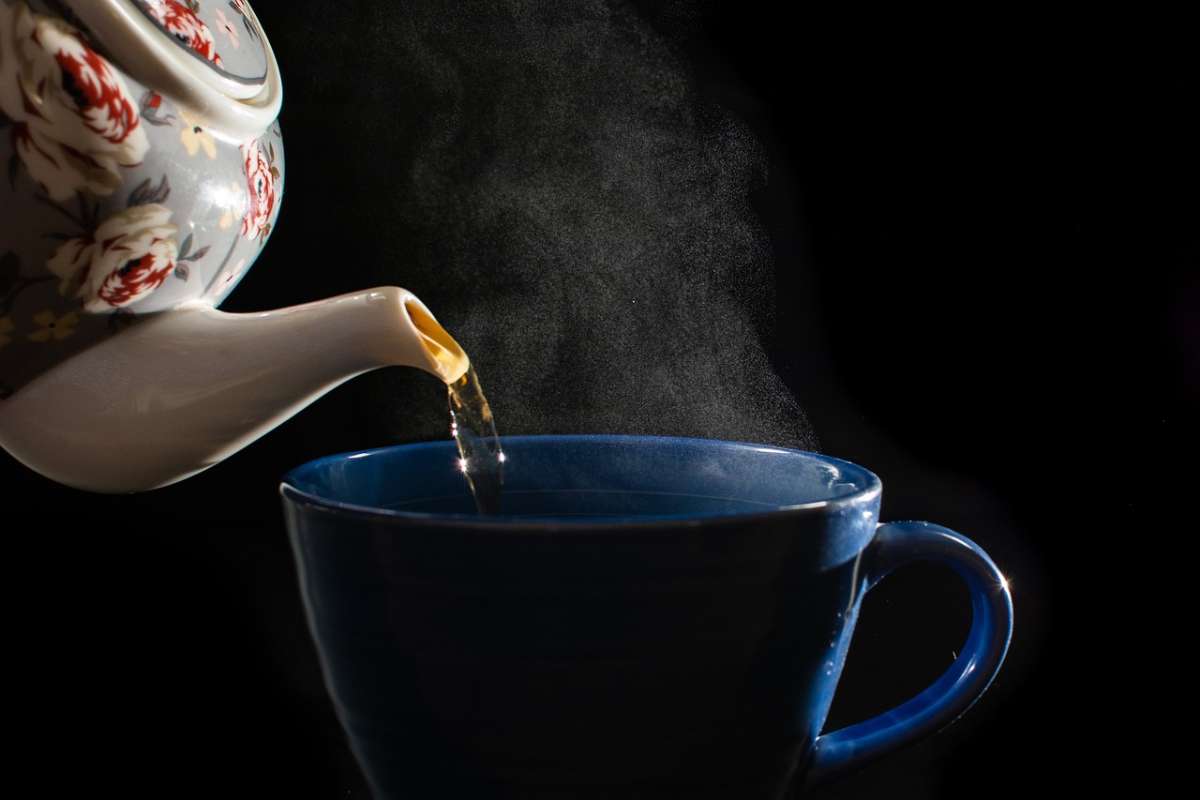
People who enjoy herbal teas often find mushroom tea soothing and pleasant, especially when mixed with honey or lemon for added sweetness.
Caffeine vs Non-Caffeine
Mushroom coffee contains less caffeine than regular coffee because it’s blended with mushrooms, which naturally have no caffeine.
It usually has about half the caffeine of a typical cup of coffee, making it a great option for those who want a caffeine boost without the jittery side effects.
Mushroom tea is naturally caffeine-free, which makes it a perfect choice for those who want to avoid stimulants. It is also ideal for consumption in the evening or before bed, as it won’t interfere with sleep.
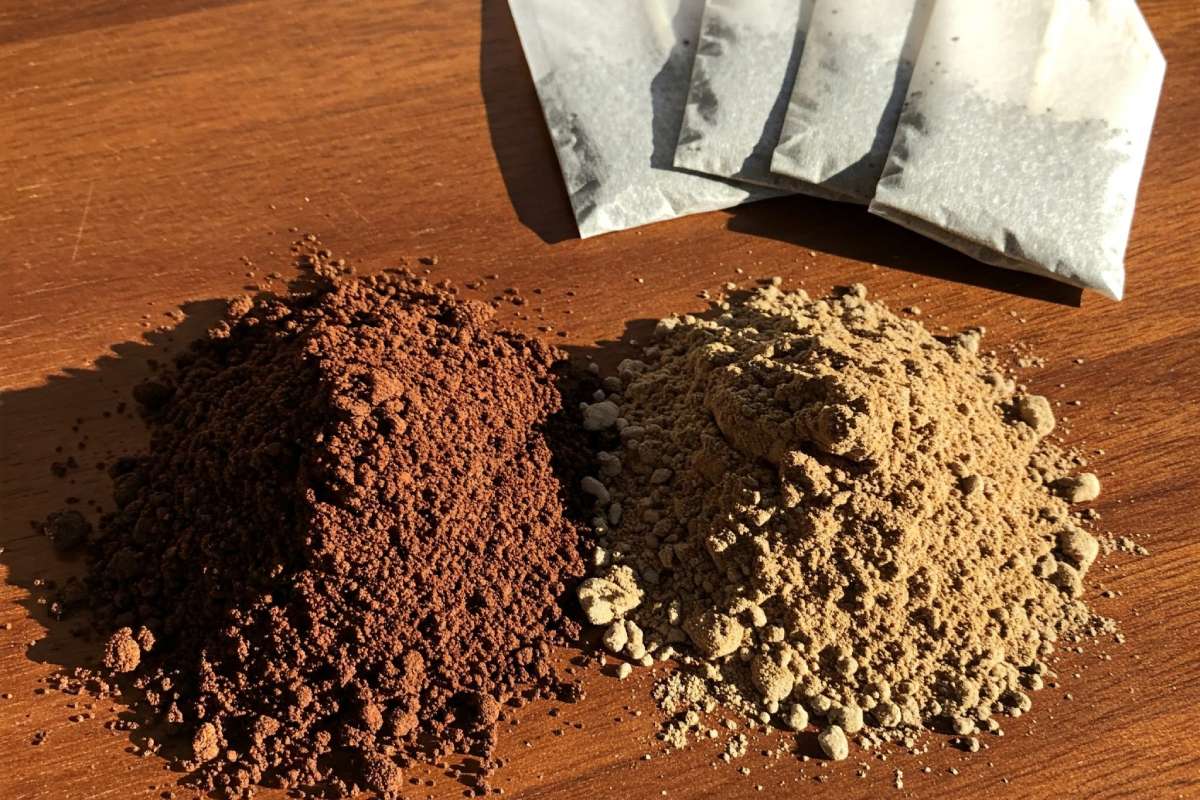
Health Benefits of Mushroom Coffee
Focus and Brain Functionality: Mushrooms like Lion’s Mane found in mushroom coffee have been shown to support cognitive function, helping with focus, memory, and mental clarity.
Energy Boost Without Crash: The lower caffeine content combined with mushroom nutrients gives a gentle, sustained energy boost without the crash often experienced with regular coffee.
Health Benefits of Mushroom Tea
Reduces Stress and Promotes Relaxation: Reishi tea, in particular, is known for its calming properties, making it a great choice for reducing anxiety and promoting relaxation.
Better Sleep: With no caffeine and its stress-relieving properties, mushroom tea can help promote deeper, more restful sleep. Fair to say it is consumable before bed.
Both mushroom coffee and mushroom tea are rich in antioxidants and anti-inflammatory compounds, which can help improve immune function and fight off infections.

Potential Side Effects of Mushroom Coffee and Mushroom Tea
While mushroom coffee and mushroom tea offer numerous health benefits, it’s essential to be aware of potential side effects.
These drinks are generally safe for most people, but certain individuals may experience reactions based on their health conditions.
| Side Effect Category | Mushroom Coffee Risk | Mushroom Tea Risk | Notes |
| Digestive | Moderate | Low | Start with small amounts. |
| Allergic Reactions | Low | Low | Discontinue use if occurs. |
| Medication Interactions | Moderate | Moderate | Consult your doctor. |
| Caffeine-Related (Headaches, Insomnia, Anxiety) | High (if caffeinated) | Low | Avoid late-day consumption. |
| Blood Sugar/Pressure | Moderate | Moderate | Monitor if you have related conditions. |
| Liver/Kidney | Low (with normal use) | Low (with normal use) | Higher risk with excessive use or pre-existing conditions. |
Certain mushrooms, such as reishi and chaga, have blood-thinning effects. This means people on blood thinners or those with bleeding disorders should consult a doctor before consuming them.
Autoimmune patients should also proceed with caution. Since medicinal mushrooms can modulate the immune system, they may interfere with autoimmune treatments.
Pregnant and breastfeeding women should also be careful, as there is limited research on how medicinal mushrooms affect them.
Which One Fits Your Budget?
Mushroom coffee tends to be more expensive, especially if you’re buying high-quality blends with added adaptogens.
A bag of mushroom coffee can cost $20 to $50, while pure mushroom extracts can cost even more, sometimes reaching $70 or more.
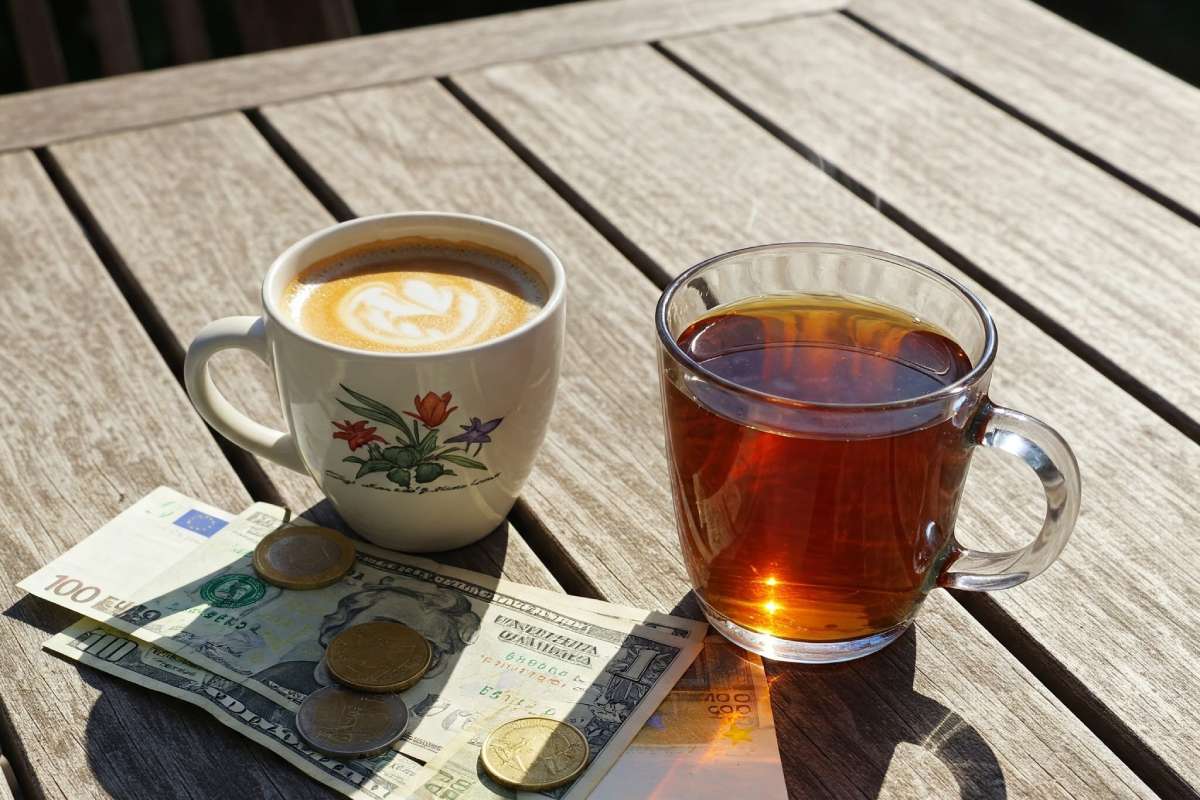
Mushroom tea, on the other hand, is generally more affordable.
Loose mushroom powders, dried mushroom slices, or tea bags can cost anywhere between $15 to $40, depending on the type of mushroom and brand.
Mushroom tea offers a more budget-friendly option, especially if you buy in bulk or make your own from dried mushrooms.
Convenience & Preparation – Which One Is Easier to Make?
One of the biggest factors in choosing between mushroom coffee and tea is how easy they are to prepare. Let’s be honest—not everyone has the time (or patience) to steep tea leaves or brew fresh coffee every morning. So, which one fits better into a busy lifestyle?
Mushroom Coffee: Fast, Familiar, and Versatile
For coffee lovers, switching to mushroom coffee feels effortless. It comes in several convenient forms:
- Instant Mushroom Coffee: Just mix with hot water, and it’s ready in seconds.
- Ground Mushroom Coffee: Brew it just like regular coffee using a French press, drip machine, or pour-over method.
- Coffee Pods: A quick option for Keurig or Nespresso users.
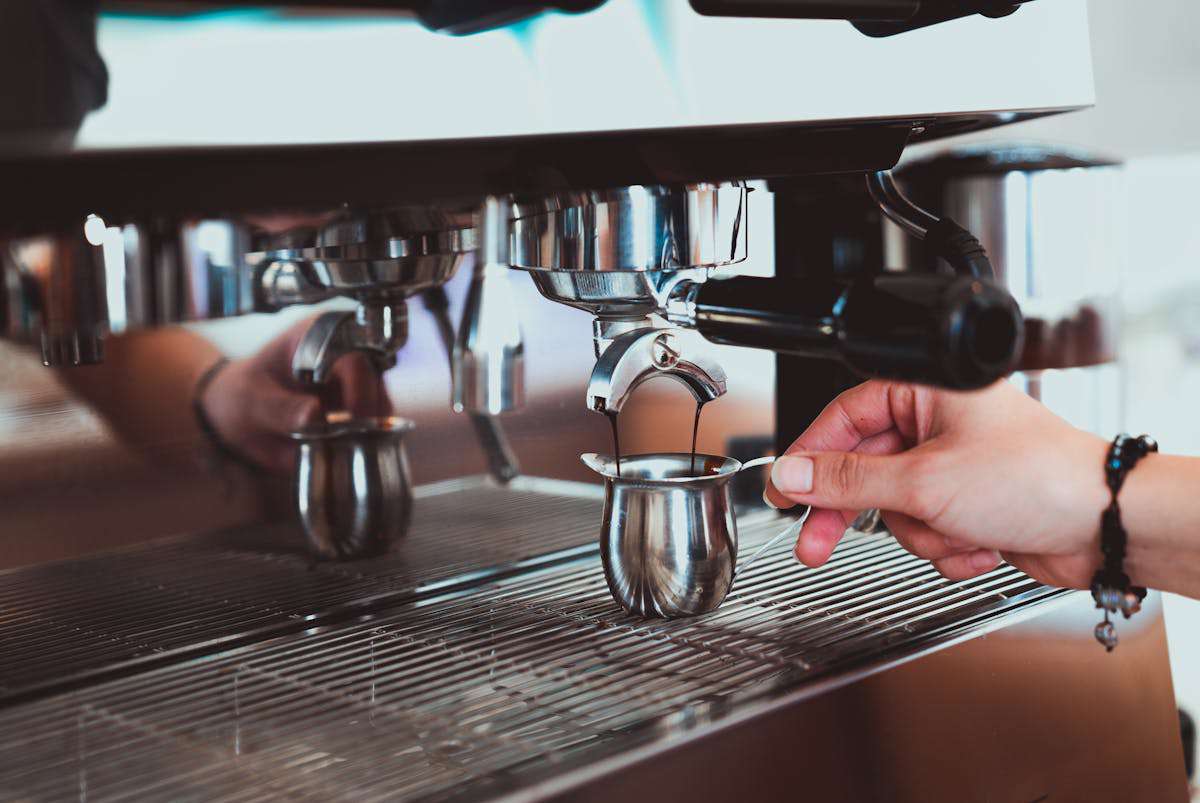
If you already have a coffee routine, swapping your regular beans for a mushroom-infused version won’t require any extra effort. Plus, the taste remains close to real coffee, making it easier to adjust.
Mushroom Tea: A Slower, More Intentional Experience
Mushroom tea takes a bit more time but offers a more mindful, relaxing preparation:
- Tea Bags: The easiest option—just steep in hot water for 5–10 minutes.
- Loose Mushroom Tea: Requires a tea infuser or strainer for a more traditional brewing experience.
- Mushroom Powder: Can be mixed with hot water or blended into lattes.
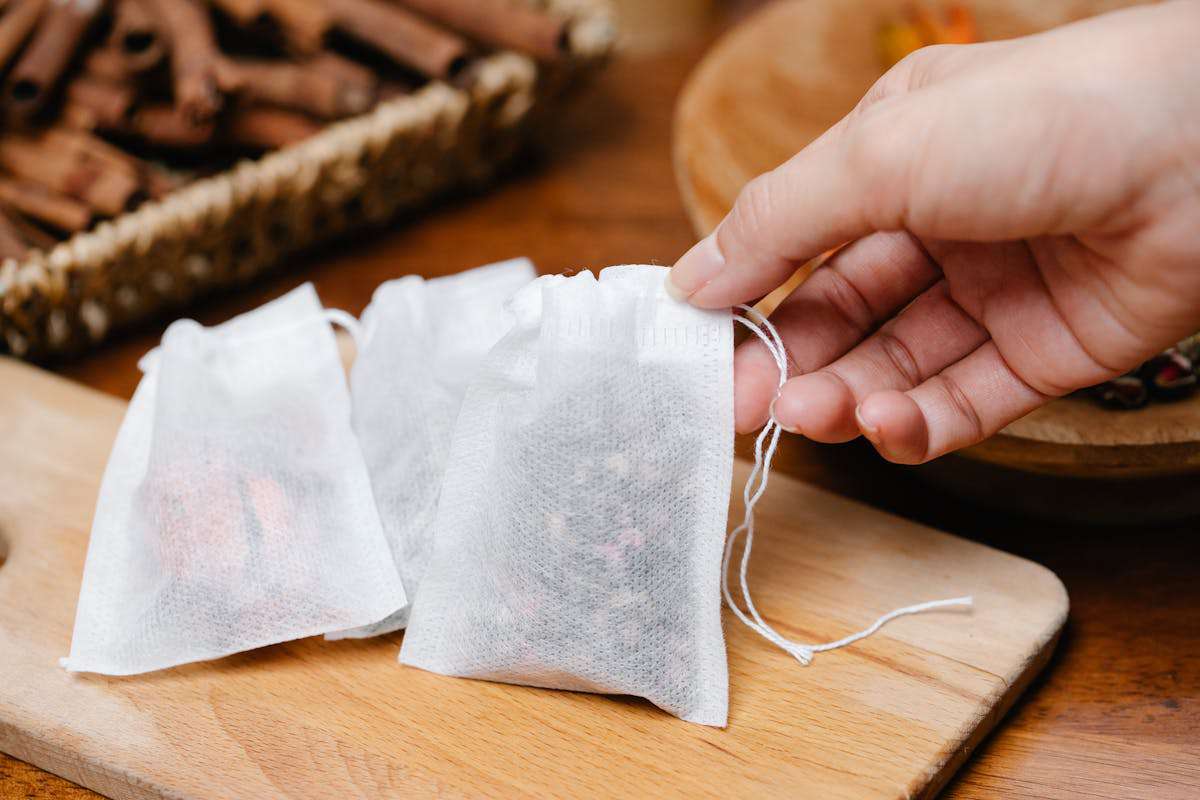
Which One Is More Convenient?
- If you’re always on the go → Mushroom coffee wins.
- If you enjoy a slow, relaxing drink → Mushroom tea is better.
- If you like experimenting → Both! Some people enjoy coffee in the morning and tea at night.
Making the Right Choice – A Practical Guide
Now that we’ve broken down the differences, let’s make this decision easy. Instead of overthinking, just ask yourself a few key questions:
Choose Mushroom Coffee If
You need a caffeine boost but want to avoid jitters.
You already love coffee and don’t want to give it up.
You want something quick and easy to prepare.
You enjoy the bold, roasted flavors of coffee.
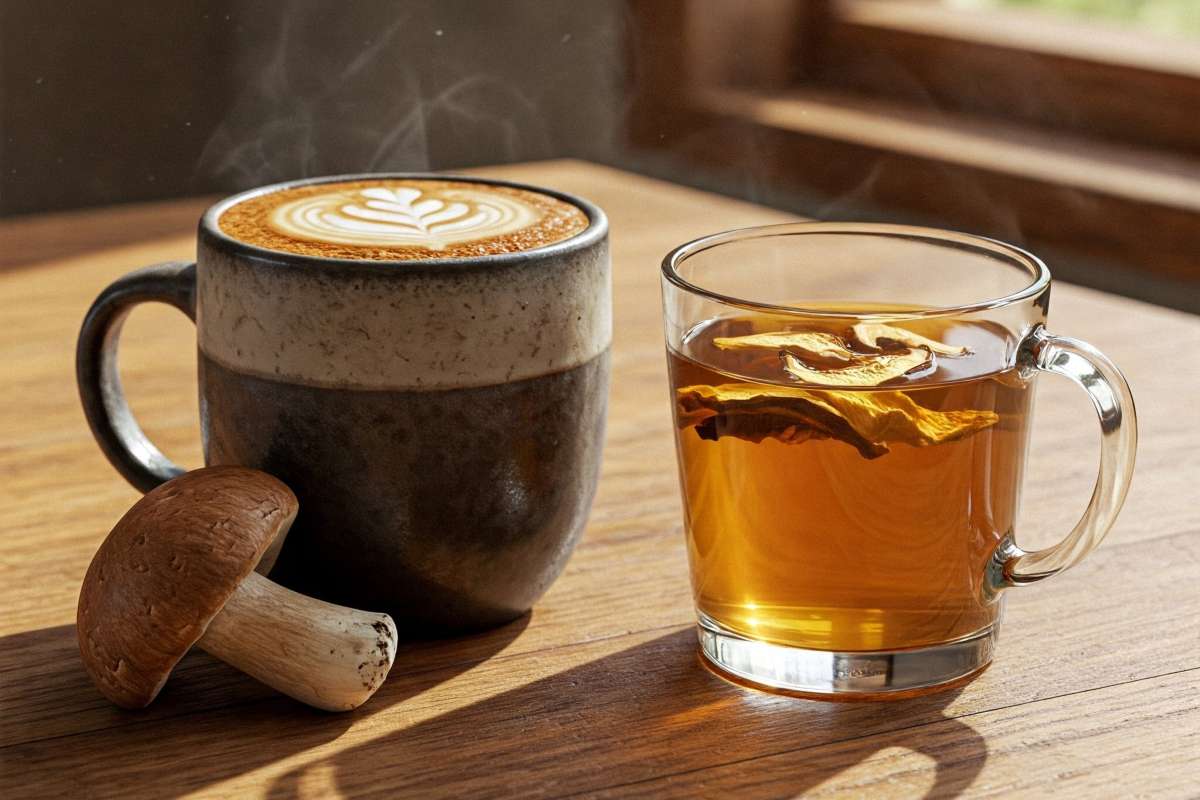
Choose Mushroom Tea If
You prefer a caffeine-free option for relaxation.
You enjoy herbal or earthy flavors.
You want something gentle on digestion and good for gut health.
You love the ritual of slowly sipping your drink.
Many people start their day with mushroom coffee for an energy boost and wind down with mushroom tea in the evening. This way, you get the best of both worlds—focus in the morning and relaxation at night.
Final Verdict?
When deciding between mushroom coffee and tea, the choice ultimately comes down to your personal preferences and health needs. Both beverages offer unique benefits and can be a great addition to a wellness routine.
Both mushroom coffee and mushroom tea have their place in a balanced diet, and neither is necessarily better than the other.



